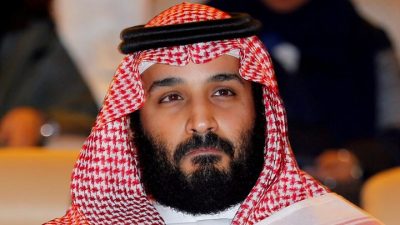Mohammed Bin Salman Drains the Saudi Swamp

Crown Prince Mohammed Bin Salman just drained the Saudi swamp.
The future King has been much more successful in this endeavor that Trump due to the fundamental differences in political systems and leadership culture, which has seen him decisively neutralize a broad swath of pro-American challengers for the throne and their supportive conspirators under the pretext of an anti-corruption campaign. While the murky world of Saudi palace politics means that nothing can ever be known for certain, there’s reason to believe that elements of the country’s “deep state” – or in other words, its permanent military, intelligence, and diplomatic bureaucracies, which in this case are mixed in with its royal and economic elite – were poised to push back against his ambitious Vision 2030 socio-economic and religious reforms, as well as the Kingdom’s newfound Great Power partnerships with China and Russia that were forged under his influential stewardship.
Considering just how radically this changed the country’s power structure by making the Salman clan the most powerful branch of the House of Saud and bestowing his bloodline with unprecedented influence over the Wahhabi clerics, it’s not an exaggeration to refer to last weekend’s events as a royal coup, albeit one that was staged preemptively in order to counter an existing regime change plot against Mohammed Bin Salman. This proactive counter-coup has been met with loud applause from the country’s majority youthful population, approximately 70% of whom are under the age of 30 and have come to resent the rigid and religiously fundamentalist royals that their modernizing rock star-like Crown Prince just recently deposed. This means that they could be expected to flood into the streets to support him if his rule comes under threat just like Turkish President Erdogan’s did during the failed pro-American coup attempt in summer 2016.
That said, the greatest threat facing Mohammed Bin Salman right now isn’t a traditional Color Revolution in the sense of an externally guided liberal youth movement being formed for regime change purposes, but in older, more religiously conservative individuals being encouraged to violently oppose what they may have been made to think is an “apostate” leadership violating the basic tenets of the Kingdom’s traditional Wahhabi interpretation of Islam by allowing women to drive and earlier vowing to “return to moderate Islam” after “swiftly deal(ing) a blow to extremist ideologies”. Ironically, this same hateful Takfiri – or “infidel” – narrative was once wielded by the Saudis themselves to destabilize states abroad, but it might now be used against the country’s future leader in order to unseat him, though the consequence of this scenario succeeding would likely throw the Kingdom into civil war because of Saudi Arabia’s generational divide between liberal youth and conservative adults.
For now, however, Mohammed Bin Salman can likely rest easy knowing that the most pressing royal threats to his rule are now neutralized and some of their billions of dollars of estimated seized assets might be redirected to subsidizing the very costly Vision 2030 national reform program and its flagship NEOM future city project, but the Crown Prince still has to be careful to avoid getting bogged down in the Yemeni quagmire if he wants to retain the pivotal loyalty of the military during this crucial time.
The post presented is the partial transcript of the CONTEXT COUNTDOWN radio program on Sputnik News, aired on Friday Nov 10, 2017:
Andrew Korybko is an American Moscow-based political analyst specializing in the relationship between the US strategy in Afro-Eurasia, China’s One Belt One Road global vision of New Silk Road connectivity, and Hybrid Warfare.
Featured image is from the author.

